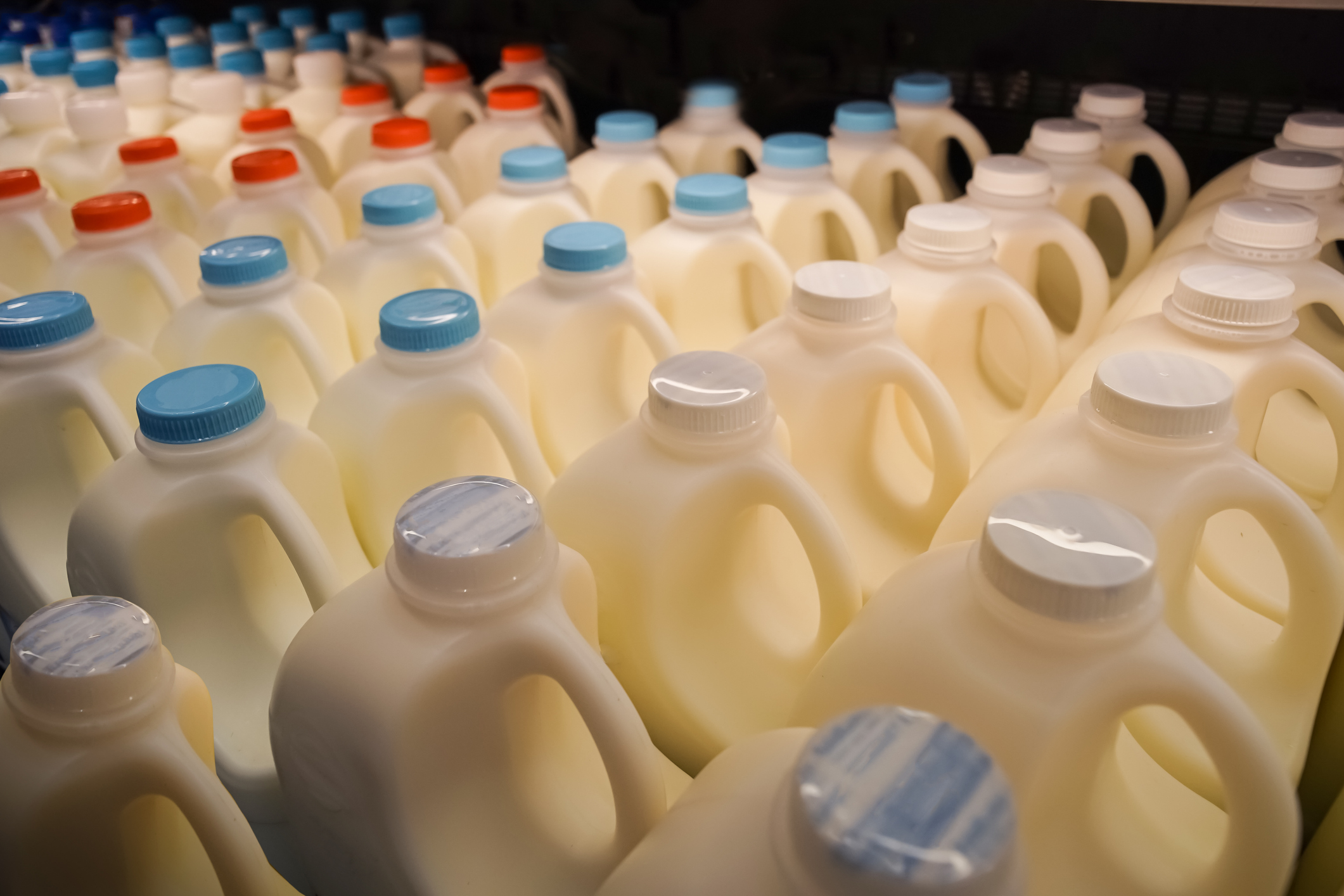Baylor Collaborative on Hunger and Poverty Receives $930,000 USDA Grant for New Milk Incentive Program

(Getty Images)
USDA's Food and Nutrition Service to pilot new SNAP incentives per 2018 Farm Bill
Media Contact: Lori Fogleman, Baylor University Media and Public Relations, 254-709-5959Follow us on Twitter: @BaylorUMedia
WACO, Texas (July 30, 2020) – The U.S. Department of Agriculture (USDA) today announced a grant of nearly $1 million to the Baylor University Collaborative on Hunger and Poverty for an innovative pilot program designed to encourage Supplemental Nutrition Assistance Program (SNAP) participants to purchase and consume milk as part of a healthy, balanced diet.
This pilot project builds on the success of previous incentive programs, which have shown positive impacts on the healthfulness of a persons' diet. Through a cooperative agreement with the Baylor Collaborative, SNAP participants shopping at select grocery stores in Texas will receive incentives for purchasing qualifying milk.
"Making nutritious foods more accessible is a USDA priority, and we are always looking for ways to leverage innovative strategies to help achieve that goal," said Pam Miller, administrator of USDA's Food and Nutrition Service (FNS). "Today's grant award will test the use of incentives in encouraging SNAP households to purchase and consume more milk – a win-win for both participants' diets and America's dairy farmers."
"We are excited to partner with USDA to explore creative ways to reduce food and economic hardship for families in Texas and around the country," said Jeremy Everett, executive director of the Baylor Collaborative on Hunger and Poverty. "Our hope is that the Healthy Fluid Milk Incentive will strengthen families' food budgets so they can get the proper nutrition they need to thrive."
The Healthy Fluid Milk Incentive (HFMI) pilot was established by the 2018 Farm Bill to encourage consumption of milk, which is part of a well-rounded, nutritious diet as described in the Dietary Guidelines for Americans. The program is expected to be fully operational by May 2021, and incentives will be tested for one year. The pilot is part of Food and Nutrition Service's commitment to employing innovative techniques to help make nutritious foods more accessible for low-income Americans.
The Baylor Collaborative on Hunger and Poverty received the $930,000 grant through a competitive process and will be partnering with South Plains Hunger Solutions Coalition and Lowe's Supermarkets to develop and test incentives at local Food King grocery stores in Littlefield, Lubbock, and San Angelo, Texas. Once the HFMI pilot is operational, shoppers using SNAP benefits at these locations to purchase qualifying fluid milk (pasteurized, unflavored and unsweetened cow's milk - skim or 1%) will receive a coupon for additional free milk. FNS will conduct an evaluation of the pilot results.
The HFMI pilot builds on the success of previous incentive programs, which have been shown to impact households' purchasing decisions and diet. The Healthy Incentive Pilot found that SNAP participants receiving incentives for purchasing fruits and vegetables consumed 26% more fruits and vegetables per day than those that did not receive an incentive. The Healthy Incentive Pilot was a precursor to the Food Insecurity and Nutrition Incentive grant program, which has since been renamed the Gus Schumacher Nutrition Incentive Program (GusNIP). GusNIP is administered by FNS and the National Institute of Food and Agriculture and supports projects to increase the purchase of fruits and vegetables among SNAP recipients.
Working on a national scale, the Baylor Collaborative on Hunger and Poverty brings together a large network of researchers and practitioners to find innovative hunger and poverty solutions through such projects as the Texas Hunger Initiative, the Global Hunger and Migration Project and the newly launched Hunger Data Lab. Baylor Collaborative scholars conduct interdisciplinary hunger and poverty research with local, state, national and global relevance.
USDA's Food and Nutrition Service administers 15 nutrition assistance programs that leverage American's agricultural abundance to ensure children and low-income individuals and families have nutritious food to eat. FNS also co-develops the Dietary Guidelines for Americans, which provide science-based nutrition recommendations and serve as the cornerstone of federal nutrition policy.
ABOUT BAYLOR UNIVERSITY
Baylor University is a private Christian University and a nationally ranked research institution. The University provides a vibrant campus community for more than 18,000 students by blending interdisciplinary research with an international reputation for educational excellence and a faculty commitment to teaching and scholarship. Chartered in 1845 by the Republic of Texas through the efforts of Baptist pioneers, Baylor is the oldest continually operating University in Texas. Located in Waco, Baylor welcomes students from all 50 states and more than 90 countries to study a broad range of degrees among its 12 nationally recognized academic divisions.